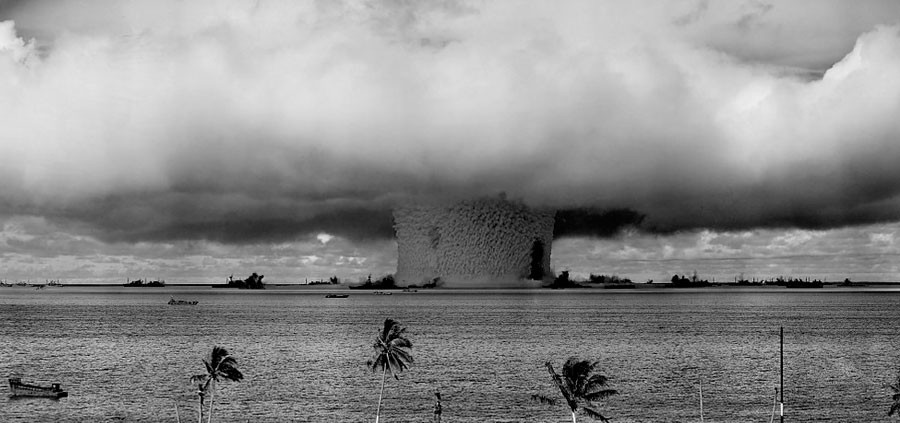Nuclear disarmament in the international legal framework
Since the beginning of the Nuclear Age, nuclear non-proliferation and disarmament have been officially recognized by all States as critical goals. The United Nations General Assembly’s first ever resolution – adopted on 24 January 1946 – set forth the goal of eliminating nuclear weapons and other weapons “adaptable to mass destruction.” In 1959, the UN General Assembly adopted a resolution which stated the hope that “measures leading towards the goal of general and complete disarmament under effective international control will be worked out in detail and agreed upon in the shortest possible time.” At its first Special Session on Disarmament in 1978, the General Assembly declared “general and complete disarmament” the international community’s “ultimate objective,” and proclaimed nuclear disarmament its “highest priority.”
Article VI of the 1968 Treaty on the Non-Proliferation of Nuclear Weapons (NPT) affirms that all States Parties should undertake “to pursue negotiations in good faith on effective measures relating to cessation of the nuclear arms race at an early date and to nuclear disarmament, and on a Treaty on general and complete disarmament under strict and effective international control.”
In its 1996 landmark Advisory Opinion on the Legality of the Threat or Use of Nuclear Weapons, the International Court of Justice (ICJ)—the UN’s highest judicial authority—interpreted this article as entailing “an obligation to pursue in good faith and bring to a conclusion negotiations leading to nuclear disarmament in all its aspects under strict and effective international control.”
Following up on the ICJ Opinion, the UN General Assembly has adopted every year beginning in 1996 a resolution calling upon all States immediately to fulfill the disarmament obligation unanimously affirmed by the ICJ by commencing multilateral negotiations “leading to an early conclusion of a nuclear weapons convention prohibiting the development, production, testing, deployment, stockpiling, transfer, threat or use of nuclear weapons and providing for their elimination.” In 2010, the resolution was adopted by a vote of 133 to 28, with 23 abstentions, the most support hitherto.
Similarly, the 2000 UN General Assembly Resolution, Towards a Nuclear Weapon-Free World: The Need for a New Agenda, “calls upon the Nuclear-Weapon States to make an unequivocal undertaking to accomplish the speedy and total elimination of their nuclear arsenals and to engage without delay in an accelerated process of negotiations, thus achieving nuclear disarmament, to which they are committed under article VI of the NPT.” It received overwhelming support with 154 in favor (including China, the United Kingdom and the United States), 3 against, and 8 abstentions.
The commitment to nuclear disarmament has been echoed in numerous other UN resolutions and international treaties. It has also been reiterated in the consensus final documents of NPT Review Conferences, including quite forcefully in the most recent one. Even the UN Security Council—which counts the recognized Nuclear Weapon States under the NPT as its permanent members—adopted in 2009 a Resolution, which calls upon all States to undertake in good faith negotiations on nuclear disarmament, and invites non NPT-parties to “join the endeavor.”







